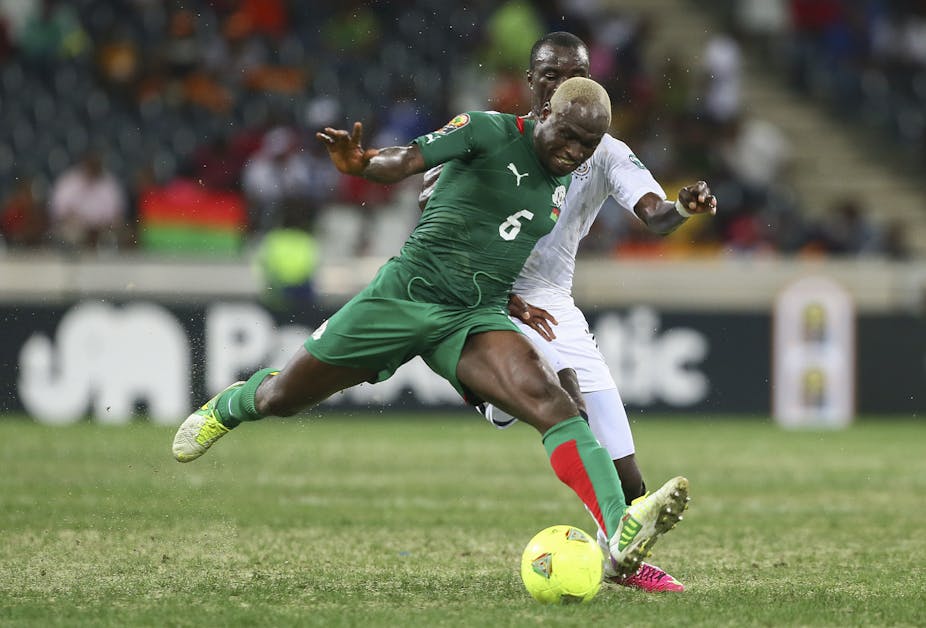Even before the whistle blasts to kick off the opening match of the African Cup of Nations on January 17, this tournament is already being remembered for its comebacks. As concerns swirled over the Ebola virus, Morocco pulled out as hosts in November, leaving the future of the thirtieth Afcon tournament in doubt and testing the resolve and leadership of its organisers, the Confederation of African Football (CAF). Equatorial Guinea stepped up to the spot in what many have seen as an unlikely comeback for a nation that had previously been disqualified.
This is the second time Equatorial Guinea has hosted the competition after it co-hosted with Gabon in 2012 and it provides the country with an unexpected opportunity to present itself to the world in a new light.
Unlikely saviour
With its riches in oil and gas and small population, Equatorial Guinea has Africa’s second highest GDP per capita but most of its citizens live in poverty and there are frequent concerns about human rights violations. An opposition politician and human rights activist were arrested in the lead up to the tournament after calling for it to be boycotted.
Hardly anyone expected Equatorial Guinea to emerge as the saviour of Africa’s premier sporting spectacle. Back in November, as 28 African nations were vying for 15 spots in the Afcon finals, the tournament became homeless. Morocco, named as host in 2011, got cold feet and sought to postpone the event citing the outbreak of Ebola in some West African nations.
Morocco’s decision was as surprising as it was bizarre. It was already serving as host for the home games of Guinea, a country with a major outbreak of Ebola. Guinea was the only of the three Ebola-stricken nations which had a realistic chance of reaching the finals. CAF turned down Morocco’s request for postponement and the Moroccans were forced to withdraw from hosting the event.
It took hours of flying from one African capital to another before the organisers found a country willing to take Morocco’s place as host. It was Equatorial Guinea – a country that had earlier been disqualified from the competition for fielding an ineligible player. With its poor facilities, Equatorial Guinea would never had stood a chance to earn sole hosting rights to the cup if Morocco’s intransigence had not provided the opportunity. Its team has now been reinstated, and Morocco disqualified.
Rush to get ready
While the opening game between the hosts and Congo will come with the usual fanfare, dignitaries, colourful spectators, Equatorial Guinea has its work cut out.
The country has just one stadium with capacity to host both the opening and final game – the 35,000-capacity venue in Bata. The rest of the country’s stadia are small compared to other venues used in the tournament’s history.

Still, Equatorial Guinea will be hard pressed to fill up all the seats. When it co-hosted the tournament in 2012, there were just 200 spectators at one of the games. Aware of the global television audience, the Equatorial Guinean president, Teodoro Obiang Nguema Mbasogo, announced he had personally bought 40,000 tickets to be handed out to fans.
Key footballing figures in Equatorial Guinea had earlier expressed concerns about Ebola arriving in the country via the tournament. In December, the BBC published an interview with a leading woman’s football from the country, Genoveva Anouma who stated: “I am afraid for everyone. They should cancel [the CAN] for the good of humanity and the good of our country. There is an 80% risk that the virus could contaminate our country but what can we do?”
Anouma’s fears were overstated, but it is clear her government is more concerned about image than Ebola. To its credit, Equatorial Guinea has planned ahead to screen players and visitors to the country for Ebola and there is due to be assistance from a team of 50 Cuban doctors.
Ultimately, while a few complaints about Equatorial Guinea’s readiness have surfaced, what will matter is whether the positives will outweigh negatives by the time the final whistle blows on February 8. Congo Republic’s team has already complained about availability of accommodation for some members of its delegation and lack of running water in its hotel.
There are likely to be a few similar complaints as the tournament begins. But Equatorial Guinea will bask in the opportunity handed to its tiny nation of 700,000 people to host Africa’s premier sporting event. Let the football begin.
Next read: Scandal-ridden FIFA deserves credit for good work on football health programmes

